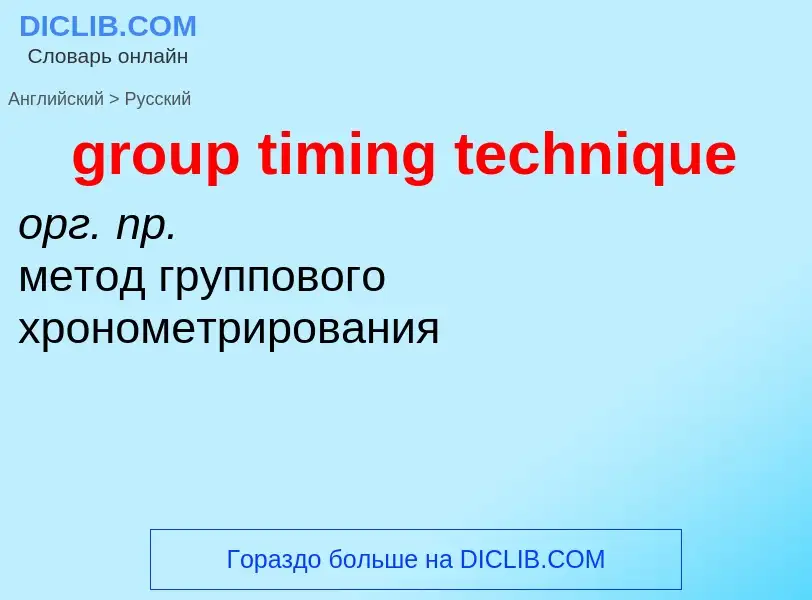Tradução e análise de palavras por inteligência artificial
Nesta página você pode obter uma análise detalhada de uma palavra ou frase, produzida usando a melhor tecnologia de inteligência artificial até o momento:
- como a palavra é usada
- frequência de uso
- é usado com mais frequência na fala oral ou escrita
- opções de tradução de palavras
- exemplos de uso (várias frases com tradução)
- etimologia
group timing technique - tradução para russo
метод группового хронометрирования
Wikipédia
The nominal group technique (NGT) is a group process involving problem identification, solution generation, and decision making. It can be used in groups of many sizes, who want to make their decision quickly, as by a vote, but want everyone's opinions taken into account (as opposed to traditional voting, where only the largest group is considered). The method of tallying is the difference. First, every member of the group gives their view of the solution, with a short explanation. Then, duplicate solutions are eliminated from the list of all solutions, and the members proceed to rank the solutions, 1st, 2nd, 3rd, 4th, and so on.
Some facilitators will encourage the sharing and discussion of reasons for the choices made by each group member, thereby identifying common ground, and a plurality of ideas and approaches. This diversity often allows the creation of a hybrid idea (combining parts of two or more ideas), often found to be even better than those ideas being initially considered.
In the basic method, the numbers each solution receives are totaled, and the solution with the highest (i.e. most favored) total ranking is selected as the final decision. There are variations on how this technique is used. For example, it can identify strengths versus areas in need of development, rather than be used as a decision-making voting alternative. Also, options do not always have to be ranked, but may be evaluated more subjectively.
This technique was originally developed by Andre Delbecq and Andrew H. Van de Ven, and has been applied to adult education program planning by Vedros, and has also been employed as a useful technique in curriculum design and evaluation in educational institutions.
Taking cue from the technique, Tunde Varga-Atkins, Jaye McIsaac and Ian Willis found that a two-stage combination of focus group and the nominal group technique, coined as nominal focus group, was particularly effective as an evaluation method.

.jpg?width=200)
